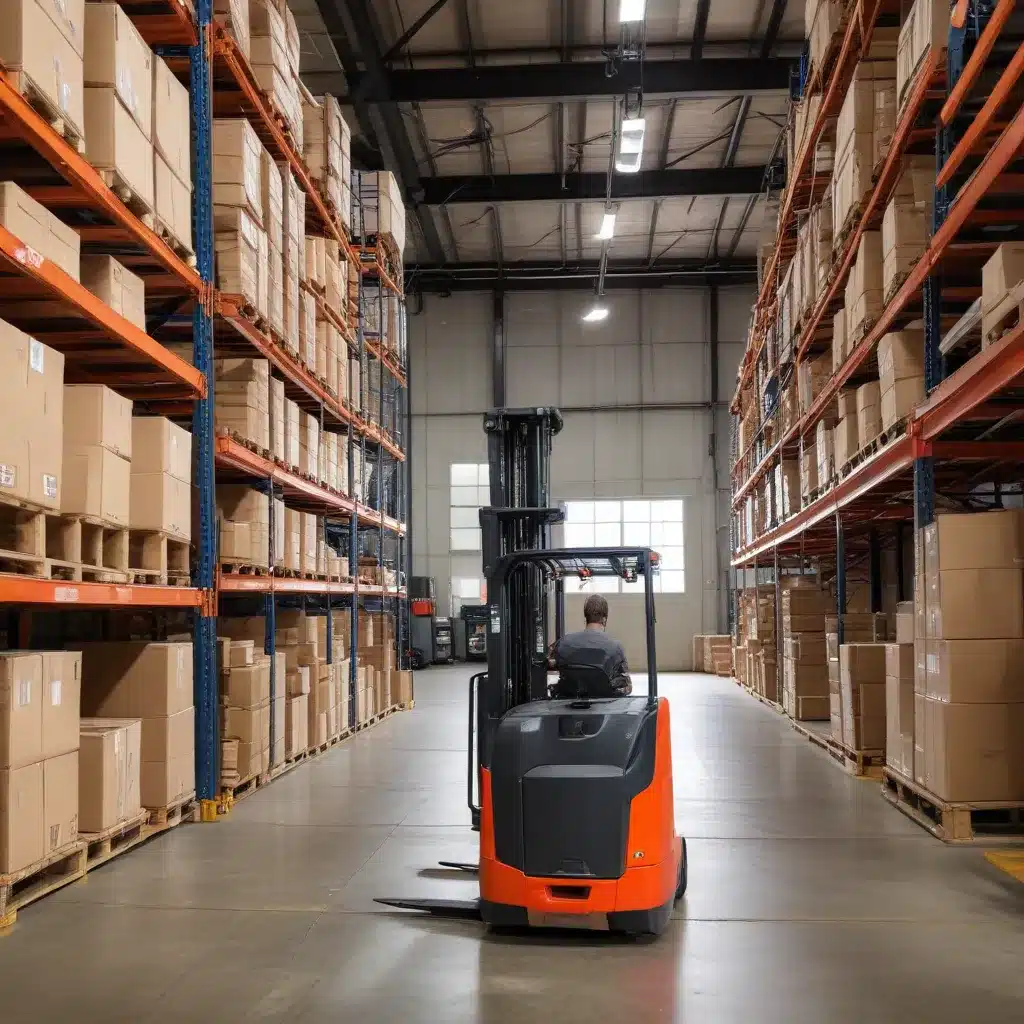
The landscape of material handling is rapidly evolving, and electric forklifts are at the forefront of this transformation. As the industry moves towards a more sustainable future, electric powertrains are emerging as the preferred choice, offering a compelling blend of performance, efficiency, and eco-friendliness. In this comprehensive article, we’ll delve into the world of electric forklifts, exploring their capabilities, innovations, and the practical advantages they bring to modern warehousing and logistics operations.
The Rise of Electric Forklift Dominance
The adoption of electric forklifts is gaining momentum as industries seek to future-proof their operations. With impending bans on the sale of diesel and petrol-powered engines, organizations are actively transitioning their fleets to electric alternatives. This shift is driven by a range of factors, including the desire to reduce carbon footprints, capitalize on energy cost savings, and enhance overall operational efficiency.
One of the key drivers behind the electrification of forklifts is the significant advancements in battery technology. Lithium-ion batteries, in particular, have revolutionized the power capabilities of electric forklifts, providing longer runtimes, faster charging times, and greater energy density compared to traditional lead-acid batteries. This has effectively addressed the primary concerns that once hindered the widespread adoption of electric forklifts, such as limited runtime and extended downtime for charging.
Maximizing Heavy-Duty Performance with Electric Forklifts
Historically, many industries have relied on the size and power of diesel forklifts to handle their most demanding material handling tasks. However, the latest generation of electric forklifts is challenging this perception by delivering exceptional performance and load-handling capabilities.
Take, for example, the TCM FHB 60-120 Electric Counterbalance Forklift Truck. Designed to handle loads ranging from 6.0 to 12.0 tonnes, this electric powerhouse represents a significant breakthrough in the industry. Equipped with cutting-edge electric motor technology and advanced controllers, the FHB 60-120 can simultaneously reduce energy consumption while increasing power output. The regenerative braking system further enhances efficiency by recycling energy, and the 96V battery delivers a strong performance with extended runtime.
Maneuverability is another area where electric forklifts excel. The FHB 60-120’s compact yet sturdy frame, combined with precise electronic control and high steering angles, enables agile maneuvering even with the heaviest of loads. The high-performance model features powerful twin traction motors in the front axle, generating high RPM, torque, and acceleration, while also boasting a tighter turning circle for enhanced maneuverability.
Operator Comfort and Safety: Prioritizing Ergonomics
As forklift operators play a crucial role in warehouse productivity and safety, leading manufacturers have placed a strong emphasis on ergonomic design. Electric forklifts, such as the TCM FHB 60-120, are engineered to prioritize operator comfort and visibility, ensuring that operators can work efficiently and safely.
The FHB 60-120’s cab features a range of adjustable elements, including a low seat position, telescopic steering column, and ergonomic pedal design, allowing operators to tailor the workspace to their individual needs. Visibility is enhanced through a clear-vision mast design, a rear-view camera, and a large, easy-to-read color display, providing 360-degree awareness with minimal need for the operator to change position.
Moreover, the FHB 60-120 incorporates advanced safety features, such as dedicated curve control for efficient yet safe cornering, and a rear steering axle with over 100 degrees of movability on the high-performance model. These innovations not only protect operators but also contribute to the overall stability and handling of the forklift, even in the most demanding applications.
Elevating Sustainability and Reducing Total Cost of Ownership
As organizations strive to achieve their sustainability goals, the environmental benefits of electric forklifts have become increasingly appealing. By eliminating direct emissions, electric forklifts help warehouses and logistics facilities reduce their carbon footprint and contribute to a more eco-friendly future.
Moreover, the lower operating costs associated with electric forklifts can have a significant impact on a company’s bottom line. The TCM FHB 60-120, for instance, features advanced controllers that optimize motor management and minimize energy loss, leading to reduced energy consumption. Additionally, the robust design of the truck and the easy maintenance of its systems help to maintain the vehicle’s high residual value, ultimately lowering the total cost of ownership (TCO) over the long term.
Navigating the Transition to Electric: Flexibility and Customization
As organizations consider transitioning to electric forklifts, the ability to adapt to their unique operational requirements is crucial. Manufacturers like Hyster and STILL are addressing this need by offering flexible power solutions and a wide range of customization options.
Hyster’s Power Cellect™ technology, for example, allows users to install a single battery source and then have the flexibility to change that battery source at any time, providing increased versatility. Similarly, STILL’s electric forklift range, spanning load capacities from 1 to 8 tons, enables organizations to find the right vehicle for their specific material handling needs.
Unlocking the Potential of Electric Forklifts
As the industry continues to evolve, electric forklifts are poised to play a pivotal role in shaping the future of warehousing and logistics. By leveraging their unparalleled performance, energy efficiency, and operator-centric design, organizations can unlock a competitive edge, enhance sustainability, and drive long-term cost savings.
To explore the full potential of electric forklifts for your operation, we encourage you to visit Forklift Reviews and discover the latest innovations and insights from industry experts. With a comprehensive understanding of electric forklift technology and its practical advantages, you can confidently navigate the path towards a more sustainable and efficient material handling future.

